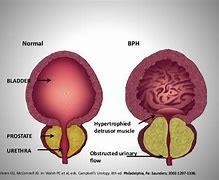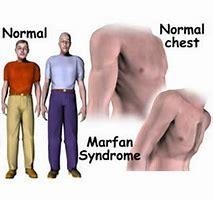A 57-year-old male presents with difficulty initiating urination. The patient notes darker-colored urine than normal. Treatment: Schedule transurethral prostate resection (TURP) Which diagnosis is described?
Prostatitis
Epididymitis
Benign prostatic hyperplasia
Testicular cancer
The Correct Answer is C
Benign prostatic hyperplasia (BPH) is a noncancerous enlargement of the prostate gland, a walnut-sized organ that surrounds the urethra in men. The enlarged prostate can compress the urethra and cause urinary problems, such as difficulty starting or stopping urination, weak urine stream, frequent or urgent urination, and blood in the urine. Transurethral prostate resection (TURP) is a surgical procedure that removes excess prostate tissue and relieves the pressure on the urethra.

Nursing Test Bank
Naxlex Comprehensive Predictor Exams
Related Questions
Correct Answer is A
Explanation
Infectious mononucleosis, also known as mono or the kissing disease, is an upper respiratory tract infection caused by the Epstein-Barr virus (EBV). EBV is a member of the herpesvirus family and can be transmitted through saliva or blood. The infection typically affects the lymph nodes, tonsils, and pharynx, causing symptoms such as fever, sore throat, swollen glands, and fatigue. The infection usually resolves on its own within a few weeks, but some people may experience complications such as splenomegaly, hepatitis, or neurological disorders. The diagnosis of infectious mononucleosis can be confirmed by a blood test that detects antibodies to EBV or by a mono-spot test that detects heterophile antibodies. A patient has been diagnosed with COPD (chronic obstructive pulmonary disease).
Correct Answer is C
Explanation
Marfan syndrome is a genetic disorder that affects the connective tissue, causing problems with the heart, blood vessels, eyes, bones, and joints. It is caused by a mutation in the FBN1 gene, which encodes for a protein called fibrillin-1. Marfan syndrome follows an autosomal dominant pattern of inheritance, which means that only one copy of the mutated gene is needed to cause the disorder. A person with Marfan syndrome has a 50% chance of passing on the mutated gene to each child, regardless of the gender of the parent or the child.

Whether you are a student looking to ace your exams or a practicing nurse seeking to enhance your expertise , our nursing education contents will empower you with the confidence and competence to make a difference in the lives of patients and become a respected leader in the healthcare field.
Visit Naxlex, invest in your future and unlock endless possibilities with our unparalleled nursing education contents today
Report Wrong Answer on the Current Question
Do you disagree with the answer? If yes, what is your expected answer? Explain.
Kindly be descriptive with the issue you are facing.
